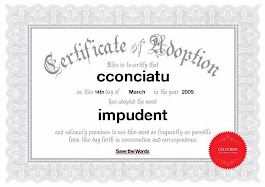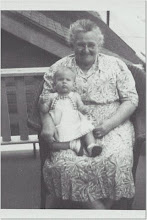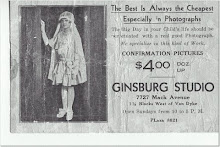One of the most well known opening lines of all time is from a poem. Do you recognize this:
How do I love thee? Let me count the ways.
We've probably all said these lines or heard them sometime in our lives. This is sonnet #43 from Sonnets from the Portuguese by Elizabeth Barrett Browning. She was a recluse for many years after the tragic death of her brother. She rarely left her bedroom, yet she wrote beautiful, haunting and imaginative poetry. She did eventually marry, at age 40 - she eloped - and had a happy marriage and gave birth to a child at age 43.
This is the entire sonnet:
How do I love thee? Let me count the ways.
I love thee to the depth and breadth and height
My soul can reach, when feeling out of sight
For the ends of Being and ideal Grace.
I love thee to the level of everyday's
Most quiet need, by sun and candle-light.
I love thee freely, as men strive for Right;
I love thee purely, as they turn from Praise.
I love thee with the passion put to use
In my old griefs, and with my childhood's faith.
I love thee with a love I seemed to lose
With my lost saints!---I love thee with the breath,
Smiles, tears, of all my life!---and, if God choose,
I shall but love thee better after death.
The classic verse form she used is called a Petrarchan Sonnet.
Besides verse form, poets use many different devices in their poetry such as irony, figures of speech, imagery, metaphor.
Check out this short poem and imagine the color and texture of what he is saying:
The Red Wheelbarrow by William Carlos
so much depends
upon
a red wheel
barrow
glazed with rain
water
beside the white
chickens
The author just wrote a few short lines, yet with his use of figurative language, didn't he pop open your imagination with colors and texture? Aren't those chickens bright against the red of the wheelbarrow. Did you get your feet wet standing out there in the rain looking at it?
Another short poem where the author uses irony:
Earth by John Hall Wheelock
"A planet doesn't explode of itself," said dryly
The Martian astonomer, gazing off into the air-
"That they are able to do it is proof that highly
Intelligent beings must have been living there."
The irony, I'm sure you noted is that the people living on the planet - probably earth- are so intelligent they figured out how to blow themselves into oblivion. How intelligent was that?
I have to get real now and go wash the floors and take some spaghetti sauce out of the freezer for dinner. So I gotta go. I was in a poetry mood and wanted to share a few bits of information with you. I'll probably do it again soon, so I've called this lesson number one. Watch out for those white chickens! See you later.



































.JPG)






































No comments:
Post a Comment